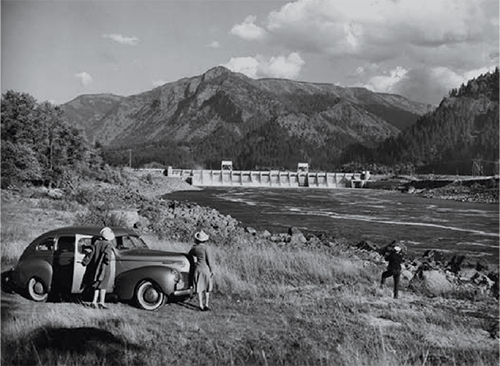VICTORIA – The recently completed public consultation on the Columbia River Treaty’s impacts on BC agriculture has come up short.
“We are extremely disappointed that we only received four submissions to our request for feedback,” says Kathy Eichenberger, who is leading the Columbia River Treaty review on behalf of the province.
Eichenberger acknowledges that it has been an extremely difficult summer for agricultural producers.
“Drought, heat, smoke and fires have all impacted farmers this year,” she says. “But we would have hoped that, in particular, the commodity groups that we reached out to who have staff would have been able to respond.”
How to proceed next is the question.
“We did receive feedback that our initial document was short on actionable items and we will consider more of an intentions paper based on what we have learned thus far,” says Eichenberger.
The review team is still interested in submissions from groups that were unable to meet the September 15 deadline for feedback.
“It is our hope that when producers shift into fall, they will find more time to give us feedback,” says Eichenberger. “If you have some ideas, send them along.”
Part of Eichenberger’s task is to understand the needs of farmers and develop some specific strategies for supporting their interests that negotiators can weave into the on-going renegotiation of the 60-year-old treaty. Given the diversity among BC farms within the area covered by the treaty, it’s no easy task. The strategies must include everyone from small-scale farms to large ranches and orchards with multiple employees.
The current treaty lacks a key element that affects the ability of BC farmers to grow their business or compete with Washington state growers in the portion of the basin that lies south of the 49th parallel. The perceived advantage that Washington growers have when they access Columbia River water to irrigate is not in fact true, says Eichenberger.
Yet the treaty was responsible for the loss of 2,000 acres of fertile farmland, flooded when dams were built along the length of the river to manage floods and generate power. Communities, farms and families were uprooted with little discussion and even less compensation. There was no program to mitigate those losses over time.
“What we are looking for are ideas to support and grow BC agriculture given these historical impacts,” explains Eichenberger.
Ranching impacts shared
The Kootenay Livestock Association was among the four respondents to the discussion paper. Its detailed submission, as well as a 2018 report on agricultural impacts from development of the Libby Dam in 1972, gives a full picture of the impacts and specific recommendations on how to address them from the point of view of ranchers.
“There were very direct impacts to the ranching community, particularly with the flooding from the Libby dam,” says Fort Steele rancher Lonnie Jones. “We lost bottom farmland but we also lost grazing licences and leases.”
He notes that the area’s grazing allotment was reduced by almost 40,000 animal unit months.
While owners of expropriated land were compensated, they were also promised support to purchase replacement lands but the province never made good on that pledge.
“The land that was flooded was a key to ranching in our area,” maintains Jones. “I believe that fertile land was a foundation to support some 10,000 cattle. We’ve lost much of that business now and there is not much critical mass remaining to sustain agriculture.”
This includes a loss of farm services. Jones says a neighbour had to pay $1,500 in travel time recently to have a mechanic come from southern Alberta to service a tractor.
“There has never been any specific program to mitigate the agriculture losses in the Columbia basin,” says Jones. “There is a fish and wildlife compensation program but not one for farmers.”
The Fish and Wildlife Compensation Program is a partnership between BC Hydro, the province, Fisheries and Oceans Canada, First Nations and public stakeholders to conserve and enhance fish and wildlife impacted by construction of BC Hydro dams.
Jones is not hopeful for the future.
“I am worried that we are at the start of a demise here,” he says. “I see less than 40% of the ranches we had 30 years ago and the province is not taking the interests of farmers very seriously.”
While environmental considerations are enjoying a higher profile in today’s discussions than they did in the 1960s, Jones says agriculture remains overlooked.
“We are relegated to the back benches in any discussions around the Columbia River Treaty and how any monies are distributed,” he says. “Farming businesses are a key to a sustainable Kootenay economy. We need a bigger representation from the province.”
Renegotiation of the treaty must complete in time for 2024, when the current treaty expires.


 The battle continues long after the war is over
The battle continues long after the war is over